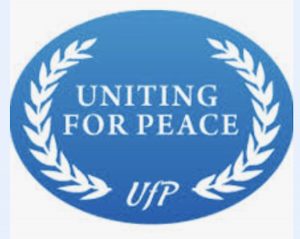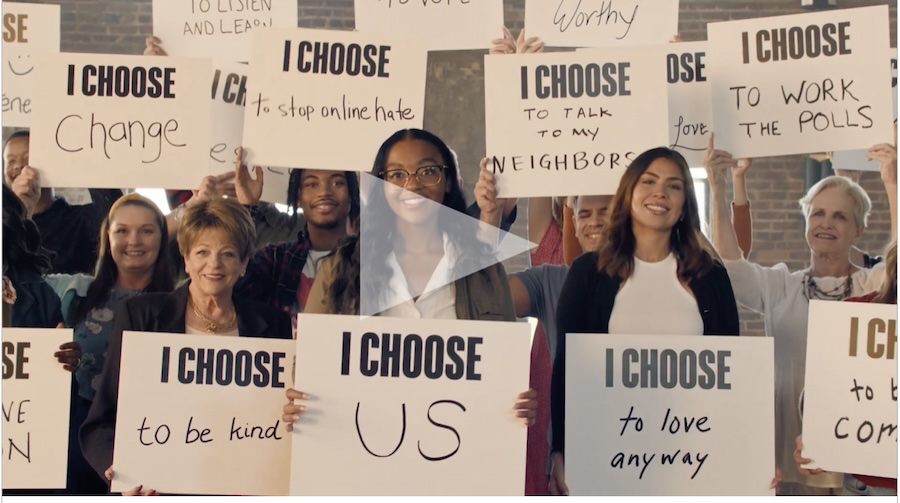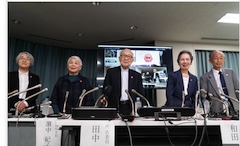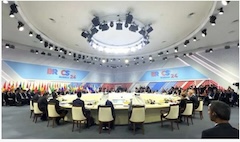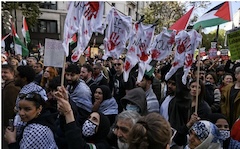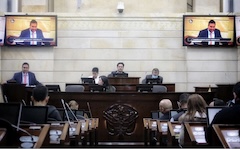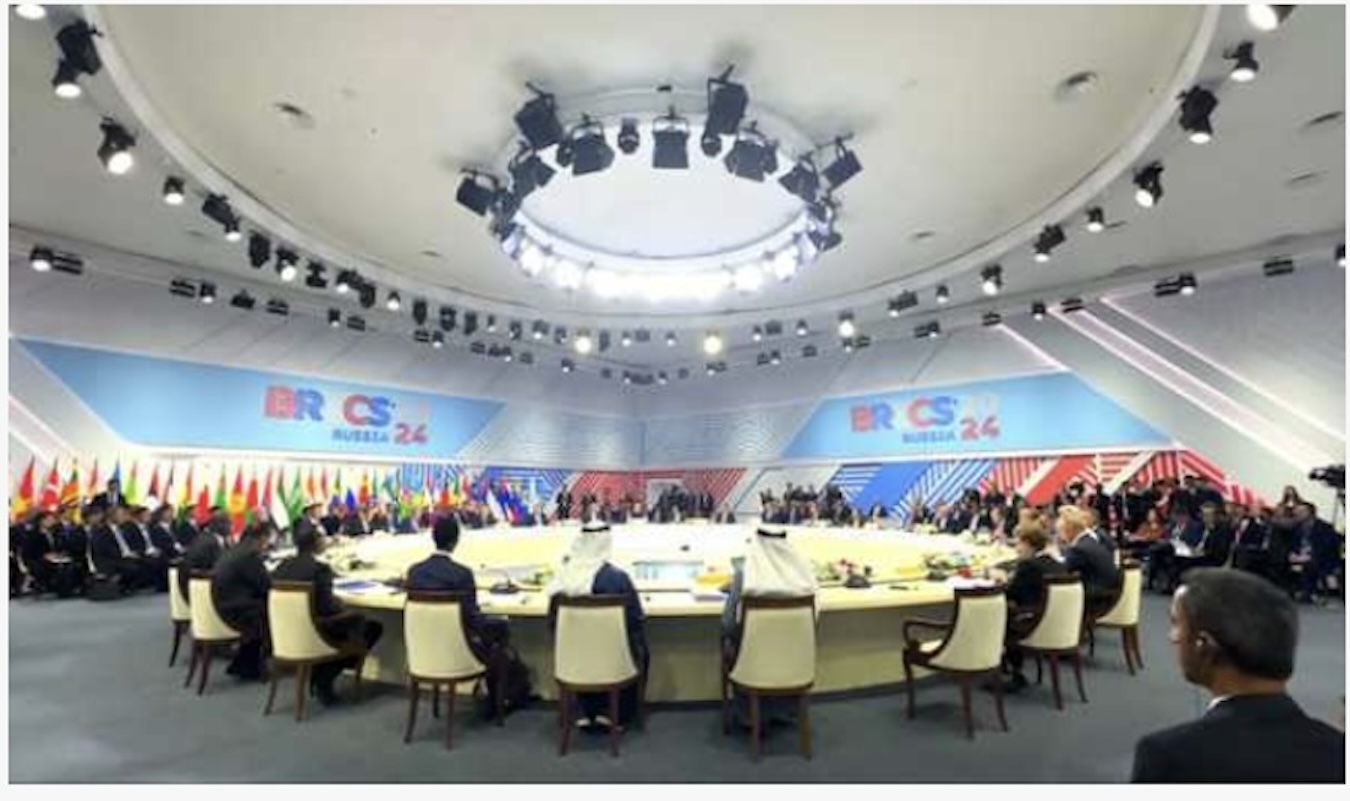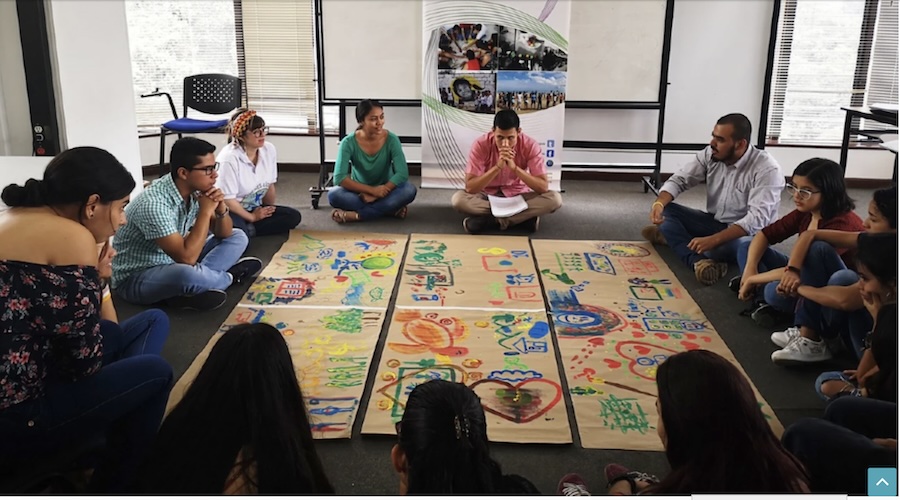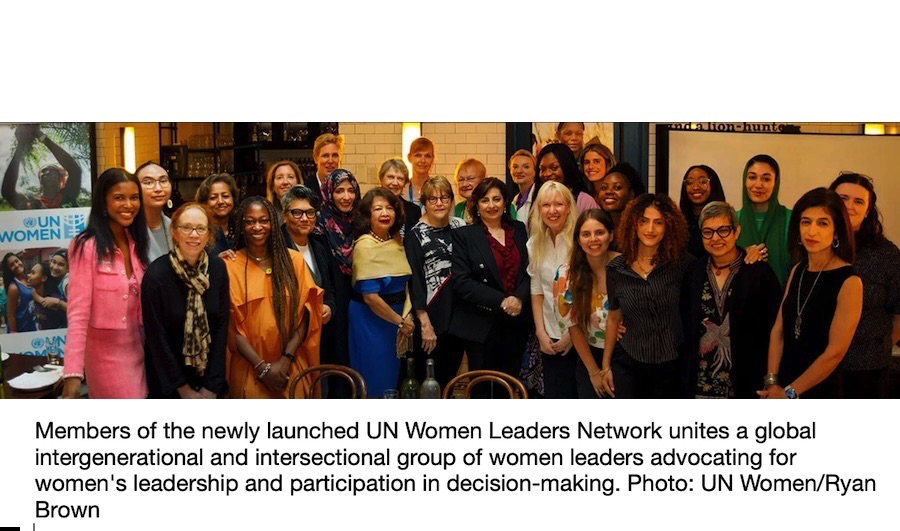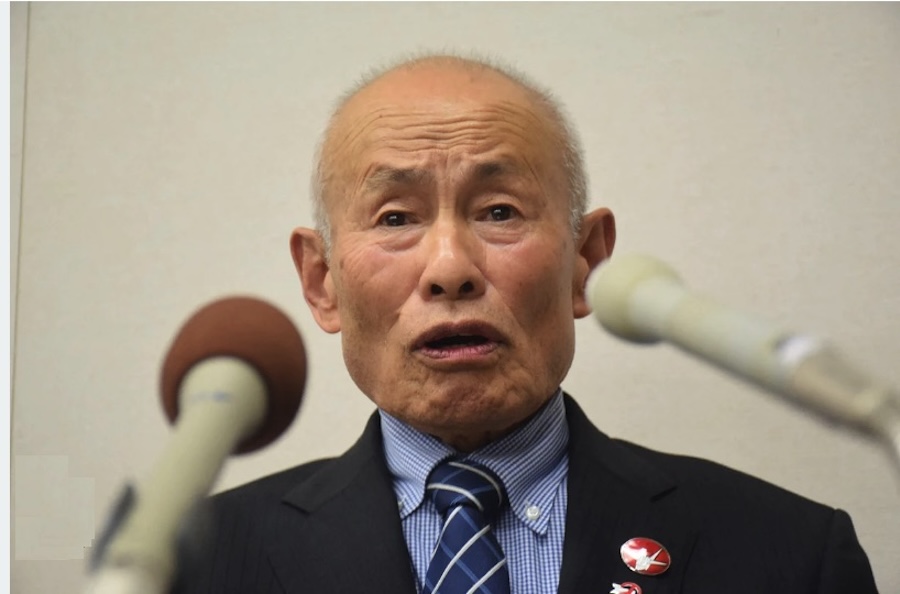. . DEMOCRATIC PARTICIPATION . .
A press release from World Future Council (slightly abridged)
The World Future Council is delighted to announce 12 exceptional finalists for the 2024 World Future Policy Award on Peace and Future Generations.
From 47 nominations across 29 countries, our distinguished panel of international experts has selected these finalists for their outstanding contributions to sustainable peacebuilding and the well-being of both present and future generations.
The five winners will be revealed and honoured at our high-level award ceremony on 27 November 2024 at the Maison de la Paix in Geneva.

The World Future Policy Award celebrates top policy solutions for current and future generations. We raise global awareness of exemplary laws and policies, accelerating policy action towards a common future where every person lives in dignity on a healthy, sustainable planet. As the world’s premier policy prize, we showcase inspiring and effective policies, not individuals, on the international stage. Each year, we focus on one topic where progress is particularly urgent and receive nominations from across the globe. This year’s topic is Peace and Future Generations.
Enduring peace is perhaps the most critical component for the sustainable development of societies and the protection of both people and the planet. Our global community is in desperate need of creative and inclusive policy solutions at all levels to resolve conflict, prevent war, and foster a culture of peace. The good news is, these policies exist!
Finalists (in alphabetical order)
Canada’s Feminist International Assistance Policy (2017)
Canada’s Feminist International Assistance Policy (FIAP), focuses on promoting gender equality and empowering women and girls. Its feminist approach addresses systemic gender inequalities, engages men and boys, and fosters inclusive participation. The policy has been implemented in countries like Afghanistan (supporting women’s rights and economic empowerment), Iraq (establishing centres for survivors of sexual violence), Senegal (empowering women in agriculture), and Cambodia (improving food security through climate-resilient agriculture). The FIAP’s influence extends to international development policies, contributing to sustainable peace and security initiatives. .
Costa Rica’s Abolition of the Army (1948) and Affirmation of Active Neutrality (1983 and 2014)
Costa Rica abolished its army in 1948, embedding this in the Constitution (Article 12), followed by the Proclamation of Active, Unarmed, and Perpetual Neutrality in 1983 and the Proclamation of Peace as a Human Right and of Costa Rica as a Neutral Country in 2014. These milestones removed military influence from politics, promoted international peace, and directed resources to social and economic development.. .
Finland’s Women, Peace and Security National Action Plan (2018-2021)
Finland’s third National Action Plan (NAP) on Women, Peace, and Security builds on previous plans to enhance gender equality in conflict prevention and peacebuilding. It prioritises women’s participation in peace processes, mediation, gender mainstreaming in security sectors, and the protection of women and girls in conflict zones, while addressing new global security challenges. The plan exemplifies Finland’s leadership in the international WPS agenda, with strong civil society involvement ensuring an inclusive and adaptable approach. . . .
The Great Law of Peace of the Haudenosaunee Confederacy (Kaianere’ko:wa) (12th/13th Century- ongoing)
The Great Law of Peace, established in the 12th or 13th century, united the Haudenosaunee nations in what is now New York and Canada under a governance system prioritising peace, consensus decision-making, and sustainability. Key features include gender equity through the role of Clan Mothers and a commitment to long-term environmental stewardship. Its influence extended beyond its region, contributing to modern democratic principles and treaty law. . . .
Kauswagan – From Arms to Farms Program (Phillippines) (2010)
Launched in 2010 in Kauswagan, Philippines, the “From Arms to Farms” program reintegrates former combatants through sustainable agriculture, promoting peace between Christian and Muslim communities. By focusing on organic farming and community-led development, the program has transformed conflict zones into peaceful, productive areas. The program significantly reduced poverty from 80% in 2010 to 9.1 % in 2020, increasing food security, while enhancing social cohesion.
Mayor Rommel C. Arnado led consultations and dialogues to address concerns and build trust, encouraging all parties to embrace the program’s potential for positive change. This innovative, effective and holistic approach serves as an exemplary model for peacebuilding initiatives and sustainable development in conflict-affected areas.
(Article continued in right column)
Question related to this article:
How can we develop the institutional framework for a culture of peace?
(Article continued from left column)
The Moriori Peace Covenant (Nunuku’s Law) (16th Century – ongoing)
The Moriori Peace Covenant (Nunuku’s Law) is an extraordinary example of a long-standing commitment to peace, nonviolence, and future generations. Established in the 16th century, it prohibits violence among the indigenous Moriori of Rēkohu (Chatham Islands, New Zealand). Despite facing immense aggression and discrimination from Māori tribes Ngāti Mutunga and Ngāti Tama, and later European settlers, the Moriori upheld their commitment to non-violence.Though this led to tragic losses, the Covenant became a powerful symbol of resilience ad integrity. . .
The Nigerian National Action Plan on Youth, Peace and Security (NNAPYPS) (2021)
The Nigerian National Action Plan on Youth, Peace, and Security (NNAPYPS) was developed in response to UN Security Council Resolution 2250, making Nigeria the first African country and second globally to adopt such a policy. It seeks to engage youth in peacebuilding and conflict prevention, focusing on vulnerabilities like unemployment and empowering young people as peacebuilders. Despite contextual challenges, NNAPYPS shows great potential and has already improved youth engagement and representation, with incremental replication at the state level.
. . .
Peace Education – Executive Order No. 570: Institutionalising Peace Education in Basic Education and Teacher Education (2006)
Executive Order No. 570, implemented in the Philippines, institutionalises peace education in basic and teacher education. Its goal is to promote a culture of peace by equipping students and educators with conflict resolution and nonviolent skills. The policy integrates peace education into the formal curriculum and fosters collaboration among government agencies, NGOs, schools and universities. Key outcomes include reduced school violence and the empowerment of educators and students to address the root causes of conflict, contributing to national unity and social cohesion. . . .
Rwanda Peace Education Programme (2013)
Rwanda’s Peace Education Programme (RPEP) aims to promote peace, social cohesion, and reconciliation following the 1994 genocide. It integrates Peace and Values Education into the national curriculum, focusing on empathy, critical thinking, and conflict prevention. The programme uniquely employs a Competence-Based Curriculum (CBC) and narrativebased teaching, using survivor testimonies to deepen understanding of peacebuilding. Key outcomes include improved social cohesion and a stronger culture of reconciliation, positioning the programme as a strong model for peace education. . .
Supporting Bougainvillean-Owned Peace: The New Zealand-Led Pacific Partnership for Peace Monitoring and Mediation (1997-1998)
The Bougainville peace process is a uniquely successful example of regionally supported, locally led conflict resolution. The New Zealand-led Pacific Partnership for Peace (1997-1998) played a key role in this process after nearly a decade of civil war. The initiative’s main components, the Burnham Talks and the Truce Monitoring Group, used a ‘light intervention’ approach characterised by inclusivity, cultural sensitivity, unarmed truce monitoring, and diplomacy. This policy contributed to a sustainable, locally-led ceasefire and stabilisation of the conflict. . . .
Switzerland’s Active Neutrality Policy (1815/1848/1907)
Switzerland’s Active Neutrality Policy, declared in 1815 and embedded in the Swiss Constitution in 1848, was codified in international law through the Hague Conventions of 1907. Its aim is to safeguard Switzerland’s independence and security by avoiding military involvement in wars while actively promoting global peace through diplomacy and humanitarian aid. This blend of military neutrality with diplomatic engagement has led to Switzerland’s leadership in the International Committee of the Red Cross (ICRC), mediation in international conflicts, and providing humanitarian aid and refuge during crises. Over time, it has strengthened Switzerland’s stability, security, and role in global peacebuilding.
Well-being of Future Generations (Wales) Act 2015
The Well-being of Future Generations (Wales) Act 2015 is a landmark policy designed to promote sustainable development across all public bodies in Wales. Its core aim is to enhance the economic, social, environmental, and cultural well-being of Wales, ensuring that present decisions do not compromise future generations. The Act mandates legal accountability for public bodies and prioritises community engagement at all levels, fostering economic resilience, environmental preservation, and social cohesion.
“At a time when we are experiencing the highest number and intensity of armed conflicts this century, it is vital to find, analyse and learn from successful approaches in conflict resolution and peace-building. We are excited to have received a high number of nominations of successful policies from a wide variety of places around the world. We can be inspired by these to build a more peaceful world for current and future generations. “— Alyn Ware, Spokesperson for Peace and Disarmament, World Future Council & Jury Member, 2024 World Future Polic
– – – – – –
If you wish to make a comment on this article, you may write to coordinator@cpnn-world.org with the title “Comment on (name of article)” and we will put your comment on line. Because of the flood of spam, we have discontinued the direct application of comments.

